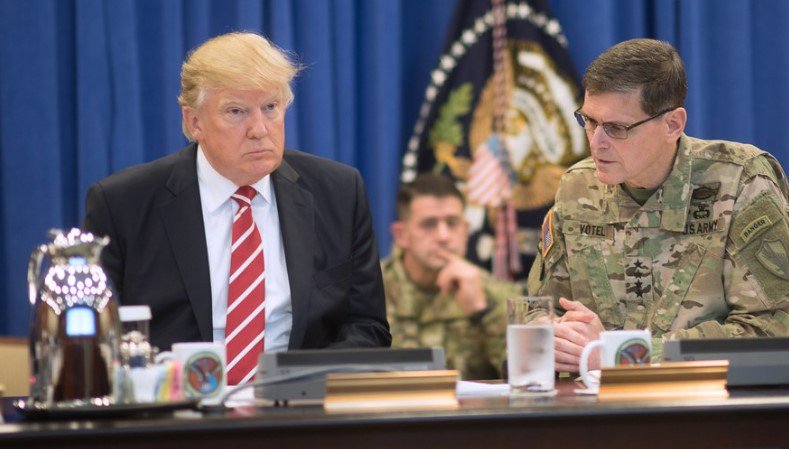In a move signaling a dramatic shift in military policy, President Donald Trump announced a series of executive orders on Monday, focusing on reversing decisions from prior administrations. Key measures include reinstating service members discharged over COVID-19 vaccine mandates and rolling back what Trump referred to as “transgender ideology” in the armed forces.
Reinstatement of Troops Discharged Over Vaccine Mandates
Speaking at a House Republican members’ conference held at his Trump National Doral Miami resort, Trump confirmed his plan to fully reinstate troops who were dismissed for refusing COVID-19 vaccinations.
“We will offer full reinstatement to any service member who was expelled from the armed forces due to the COVID vaccine mandate,” the president declared to cheers from the audience. He assured that those reinstated would be returned to their previous rank and compensated with back pay.
This decision marks a stark departure from policies enforced during the pandemic, which required vaccinations as a condition for military service. Critics argue that the mandates were necessary to maintain readiness and prevent outbreaks within the close quarters of military operations. However, Trump has consistently condemned such mandates, framing them as an infringement on personal freedom.

Transgender Policy Revisions: A Controversial Move
Another key focus of Trump’s orders is the removal of what he called “transgender ideology” from the military. While details remain sparse, the language suggests a possible reinstatement of the ban on transgender individuals serving in the armed forces, which Trump first implemented during his previous term in office.
That policy, overturned by President Joe Biden in 2021, sparked significant backlash from LGBTQ+ advocates and civil rights groups. Critics argue that banning transgender individuals weakens recruitment efforts and discriminates against a segment of Americans willing to serve their country.
While proponents of the move claim it promotes military focus and cohesion, opponents are already gearing up for legal battles, likening the new policy to discriminatory practices of the past.
Pete Hegseth’s Role in Shaping the Policies
These announcements coincide with the first day in office for new Defense Secretary Pete Hegseth, a former Fox News contributor and Army veteran known for his conservative views. Hegseth has long been critical of diversity and inclusion initiatives in the military, claiming they detract from the institution’s primary mission.
Trump’s orders also signal potential rollbacks in military diversity programs, with Hegseth expected to lead these efforts. This aligns with broader GOP efforts to challenge the influence of diversity, equity, and inclusion (DEI) initiatives across various sectors of government.
Mixed Reactions Across the Political Spectrum
Unsurprisingly, the new orders have elicited polarized reactions. Republican leaders and Trump loyalists have hailed the moves as long-overdue corrections to what they perceive as ideological overreach in the military. Meanwhile, Democrats and human rights organizations warn of significant harm to service members and the military’s broader culture.
Military analysts are also voicing concerns over potential fallout. They point out that reinstating unvaccinated troops could complicate public health protocols, while targeting transgender individuals might undermine morale and recruitment.
Broader Implications of Trump’s Policies
These announcements mark the latest step in Trump’s effort to solidify his influence in reshaping government institutions according to his platform. The president’s decisions underscore his administration’s focus on combating perceived “woke” agendas while reinstating individuals and policies that align with conservative priorities.
Whether these policies stand the test of time—or court challenges—is yet to be seen. But one thing is clear: Trump’s military policies are poised to be a defining issue for his second term.
